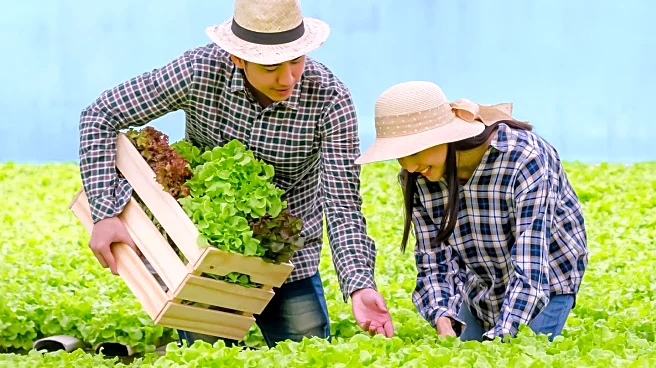What's Happening?
Oakland University students are actively participating in an organic farming program that emphasizes sustainability and community service. The initiative involves growing chemical-free produce, which is then donated to the Golden Grizzlies Pantry, a food pantry supporting students facing food insecurity. Riayn Hanson, a senior studying environmental science, highlights the importance of connecting with the environment through organic farming practices. The program teaches students about sustainable farming techniques, such as crop rotation and natural pest prevention, to minimize chemical use and promote environmental health. The farm produces a variety of vegetables, including chives, carrots, peppers, and eggplants, which are used to create walking salads for students.
Why It's Important?
The organic farming program at Oakland University addresses critical issues such as food insecurity and environmental sustainability. By providing healthy food options to students in need, the initiative helps combat the prevalence of unhealthy, low-cost food choices. Additionally, the program fosters a deeper understanding of sustainable agricultural practices among students, which is essential for promoting long-term environmental health. This hands-on experience not only benefits the students involved but also contributes positively to the local community by offering fresh produce to those who might otherwise lack access to nutritious food.
What's Next?
The program is expected to continue its efforts in educating students about organic farming and sustainability. As more students participate, the initiative may expand its reach within the community, potentially increasing the volume of produce donated to the pantry. The ongoing success of the program could inspire similar initiatives at other universities, further promoting sustainable practices and addressing food insecurity on a broader scale.
Beyond the Headlines
The organic farming program at Oakland University highlights the ethical and cultural importance of reconnecting with traditional farming practices. By prioritizing organic methods, the program challenges the conventional reliance on synthetic chemicals in agriculture, advocating for a more harmonious relationship with nature. This approach not only benefits the environment but also encourages a cultural shift towards valuing sustainability and community support.










